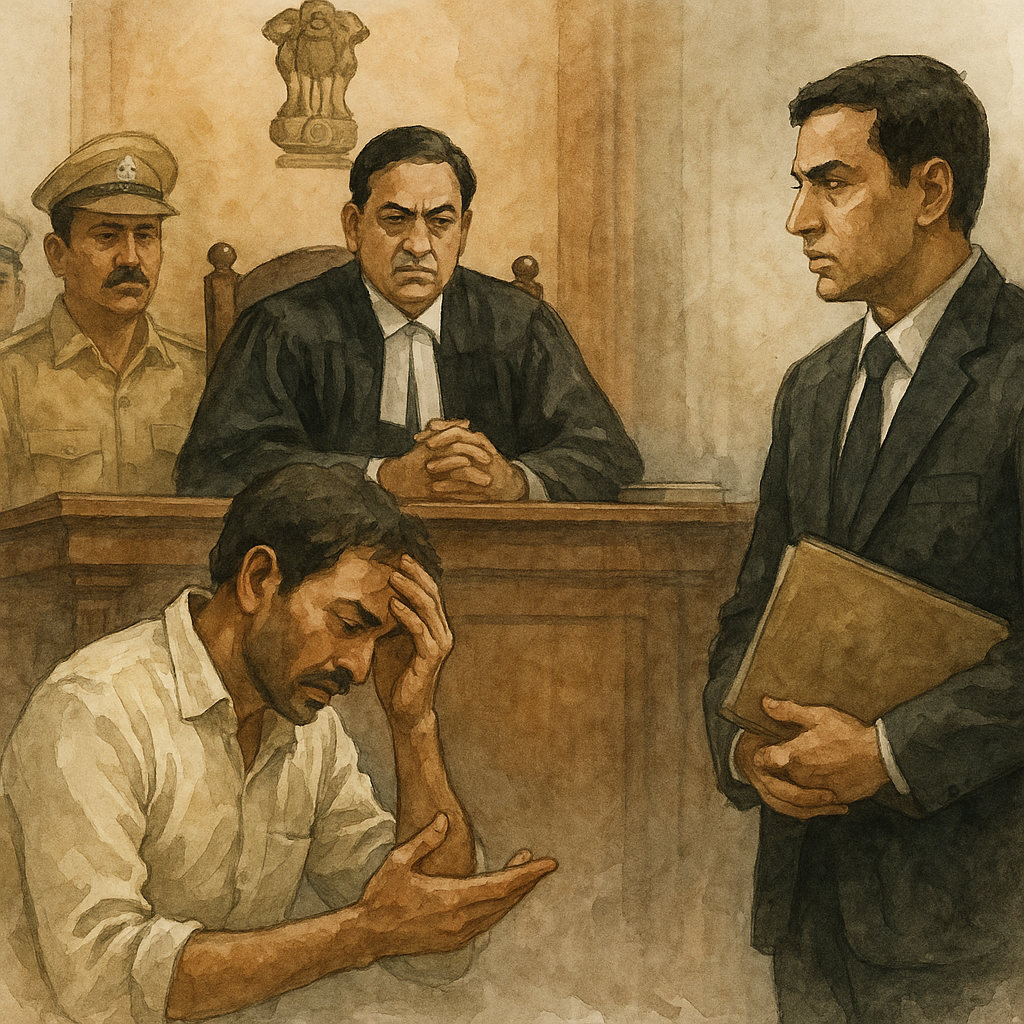Simplified Explanation of the Judgment
In a recent judgment, the Patna High Court addressed the legality of an order issued by the Bihar State Building Construction Corporation Ltd. (BSBCCL), debarring a Class-I government contractor from participating in future tenders. The contractor had filed two writ petitions challenging letters dated 15.12.2023, which debarred the firm until completion of ongoing projects.
The core dispute arose from construction contracts awarded to the petitioner for building 200-bedded Virhad Ashraya Grihas at two locations—Bettiah and Muzaffarpur. The petitioner was declared the lowest bidder (L-1) and executed agreements with BSBCCL in October 2021 and February 2022. The contracts were to be completed within 18 months.
While the work was underway, the Corporation approved additional work, including construction of roads, boundary walls, and installation of vitrified tiles. However, no extension of time was granted to the contractor for these added responsibilities.
The petitioner argued that approximately 90% of the work was completed and that delays were primarily due to reasons attributable to the Corporation. These included delays in drawing approvals, lack of fund allotment, and the rainy season. Despite these issues, the petitioner continued to work without default and received timely payments, indicating satisfactory performance.
Yet, BSBCCL issued multiple show-cause notices asking why the petitioner should not be debarred for non-completion. The contractor replied in detail, citing unresolved payments, pending drawings, and lack of departmental support. Nevertheless, the Corporation abruptly issued debarment orders without terminating the contract.
The High Court examined whether such debarment was legally sustainable. It found that the relevant Bihar Contractor Registration Rules, 2007, did not explicitly authorize such debarment without contract termination. The Court also held that blacklisting or debarment, being a serious civil consequence, must follow the principles of natural justice, including fair notice and hearing.
Furthermore, the Court noted that while an alternate remedy (appeal) existed, the writ petition was maintainable since the debarment lacked legal authority. Relying on the Supreme Court’s precedent in Gorkha Security Services v. Government (NCT of Delhi), the Court emphasized that blacklisting amounts to “civil death” and thus must strictly comply with legal standards.
Finally, considering the contractor’s willingness to complete the work within three additional months, the Court quashed the debarment orders and directed BSBCCL to consider granting more time for project completion.
Significance or Implication of the Judgment
This ruling protects contractors from arbitrary and premature debarment, especially when delays arise due to departmental shortcomings. It reinforces that executive actions, including blacklisting or debarment, must be legally supported and comply with principles of natural justice. The decision offers relief to many contractors facing similar issues and holds public authorities accountable for their procedural fairness and administrative delays.
Legal Issue(s) Decided and the Court’s Decision
- Whether the debarment order was valid under existing rules:
❖ No explicit provision in the Bihar Contractor Registration Rules, 2007 empowered such debarment without contract termination.
❖ The Court held the order was issued without legal authority and hence invalid. - Whether the contractor was heard properly before debarment:
❖ Although show-cause notices were issued, the Court held that principles of natural justice were not adequately followed. - Maintainability of writ petition despite alternate remedies:
❖ Writ was maintainable since the impugned orders were passed without jurisdiction.
Judgments Referred by Parties
- Gorkha Security Services v. Government (NCT of Delhi) [(2014) 9 SCC 105]
Judgments Relied Upon or Cited by Court
- Whirlpool Corporation v. Registrar of Trade Marks, Mumbai [(1998) 8 SCC 1]
Case Title
M/s Kundan Kumar (Civil and Electrical Contractor) v. The State of Bihar & Ors.
Case Number
CWJC No. 5028 of 2024 with CWJC No. 5127 of 2024
Coram and Names of Judges
Hon’ble The Chief Justice K. Vinod Chandran
Hon’ble Mr. Justice Harish Kumar
Names of Advocates and who they appeared for
For the Petitioner: Mr. Anurag Saurav, Mr. Abhinav Alok, Mr. Abhishek Kumar, Ms. Prity Kumari, Mr. Sharda Raje Singh
For Respondents (State): Mr. Anirban Kundu (SC-24), Mr. Standing Counsel-25
For BSBCCL: Mr. Abhimanyu Pratap, Ms. Rana Neha Kumari
Link to Judgment
If you found this explanation helpful and wish to stay informed about how legal developments may affect your rights in Bihar, you may consider following Samvida Law Associates for more updates.









